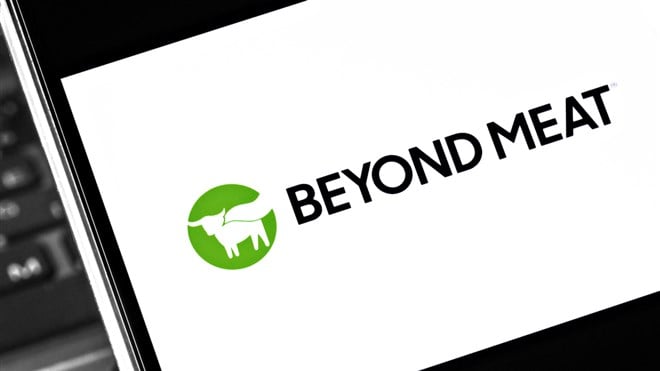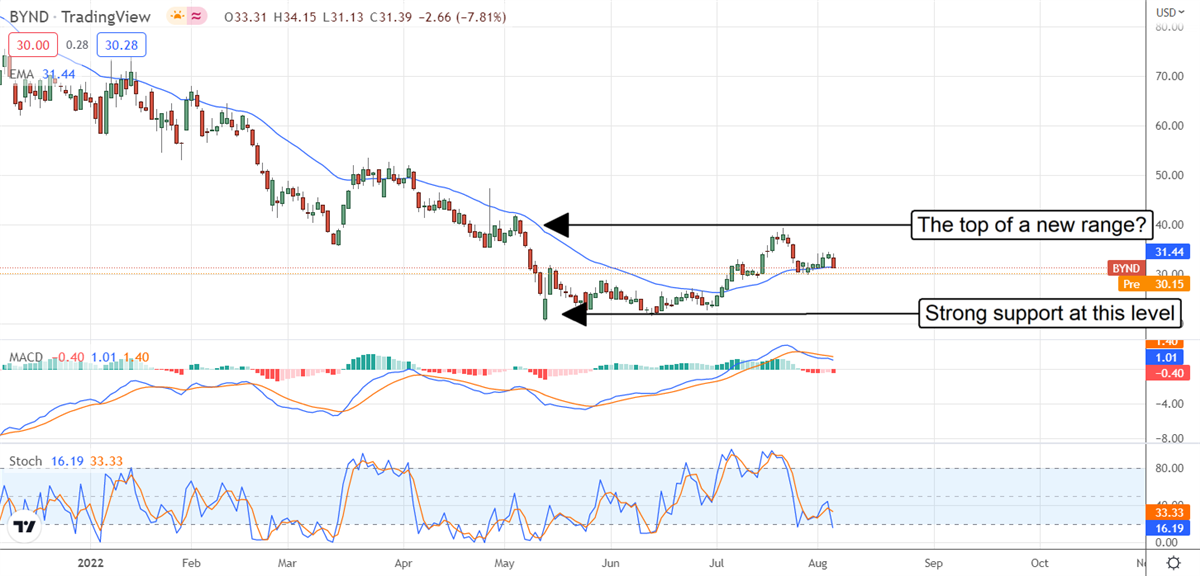
Beyond Meat (NASDAQ: BYND) had a rough quarter and the hard times are not over. The company just announced a reduction in its global workforce which can only mean one thing. The outlook for growth has been greatly reduced because of a failure to follow through on expectations. The company’s test runs with Yum! Brands (NYSE: YUM) and McDonald’s (NYSE: MCD) were met with not only a tepid consumer response but also issues with product availability and quality. Yum! Brands have yet to launch a vegan taco option or a pizza and McDonald’s says it's done with the idea.
The takeaway, however, may be that the company is coming back to earth, getting in touch with reality so to speak, and can now focus on core operations and profitability instead of chasing growth. The Q2 results weren’t awesome but enough to show there is demand for product, the question is if Beyond Meat can deliver it profitably.
“In Q2 2022, we recorded our second largest quarter ever in terms of net revenues even as consumers traded down among proteins in the context of inflationary pressures, and we made solid sequential progress on reducing operating and manufacturing conversion costs. Across the balance of the year, we are tightly focused on intensifying OpEx and manufacturing cost reductions, executing against a series of planned market activities for our global strategic partners, and strengthening our retail business through core support and the introduction of one of our best innovations to date,” says CEO Ethan Brown.
Lower Prices Drive Higher Volume For Beyond Meat
Beyond Meat reported $147.04 million in net revenue for the 2nd quarter for a decline of 1.6% versus last year. The revenue also missed the consensus by 137 basis points but the important factor for investors to note is that lower pricing helped drive sales. The company says the average realized price per pound fell 14.2% due to the use of liquidation channels and markdowns but volume increased by 14.6% to nearly offset the difference. This bodes well for future sales in consumer channels assuming cost reductions and streamlining can lower the margins enough for profits.
On a segment basis, U.S. retail sales grew by 2.2% driven by the launch of Pepsico’s (NASDAQ: PEP) Beyond Meat Jerky. The gains offset weakness in the Foodservice channel attributed to the issues with McDonald’s and Yum! Brands, and also weaknesses in Europe that are attributed to price reductions and FX headwinds. The bad news is that margins continue to shrink despite the company’s efforts to control costs. The adjusted EBITDA came in at a loss of $68.8 million or -46.8% of revenue and missed the consensus mark by a wide margin. The bottom line $1.53 in adjusted losses also missed the mark, by $0.39, and the guidance was reduced as well.
The guidance for full-year revenue was cut to $470 to $520 million which is assuming 1% to 12% growth but is down sharply from the prior guidance and below the Marketbeat.com consensus of $561 million. The company also announced a 4% reduction in the workforce which will help the margin if not the productivity. The takeaway here is the company is trying to reorganize so it can capitalize on existing markets and could surprise on the bottom line in coming quarters
The Technical Outlook: Beyond Meat May Have Bottomed
The price action in Beyond Meat took a dive three months ago with the previous earnings report, a report that foreshadowed the Q2 results, but appears to have bottomed in the time since. The price action rebounded and regained the upper side of the short-term 30-day EMA although that support appears to be shaky at this time. The post-release action has the price down near the $30 level and below the short-term EMA. If buyers don’t step in to support the price here the odds are high that price action will fall to the bottom of a developing trading range near $21. If that level doesn’t hold the stock could be in for a much larger decline. If support holds at the $30 level, however, a move back to the top of the range is likely.














